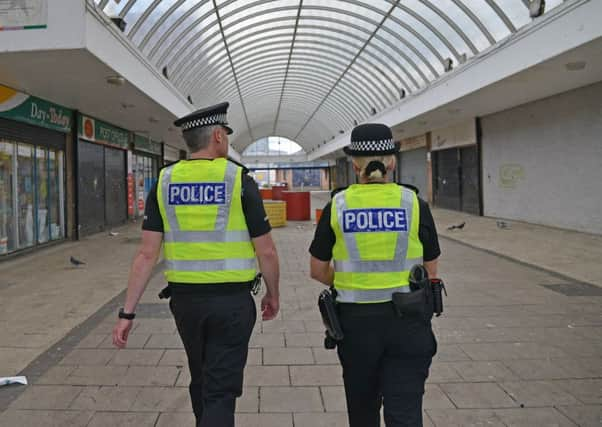Chris Marshall: Under-pressure police chief more frank than expected


Perhaps that is the reason the chief constable was unusually frank when discussing the issue of officer numbers.
Scotland’s most senior police officer was questioned about resources in light of the Barcelona terror attack, which left 16 dead and more than 100 injured.
Advertisement
Hide AdAdvertisement
Hide AdIt is often argued that community officers who have their ears to the ground are the best way of preventing such attacks, and Mr Gormley was asked if he has adequate numbers.
Perhaps it was the wishful thinking of a journalist desperate to be shaken from the torpid stupor SPA meetings invariably induce, but the chief’s answer appeared to mark a departure from previous comments.
“If we have more, we can do more,” he said rounding off his lengthy reply to a question he described as “complicated”.
Mr Gormley complained too many of his officers remain “bogged down” by the sort of back office bureaucracy which could be done by civilian staff.
And he described the demand put on his force by the public as “bottomless”.
The comments are strange given that Police Scotland has cut thousands of civilian support staff jobs since its formation in April 2013.
Stranger still, that as recently as February the national force was outlining plans to reduce officer numbers by 400.
Many of the police staff jobs were stripped out to avoid unnecessary duplication following the merger of the country’s eight regional forces.
Advertisement
Hide AdAdvertisement
Hide AdBut it has been clear for some time that those cuts went too deep, forcing officers off the frontline and into desk jobs.
While Police Scotland plans to return 300 of those in roles such as HR and finance back to frontline policing and to hire an additional 170 civilian specialists, the net effect remains a cut in officer numbers by 2020.
That decision can only be understood when viewed through the prism of the financial mess the force finds itself in.
A public sector organisation with an annual revenue budget of £1.1 billion, Police Scotland and the SPA expect a deficit of around £45 million in the current financial year.
Staff costs make up around 90 per cent of the budget so they are the obvious place to look for savings.
But while the scale of the cuts to officer numbers are miniscule compared to the swingeing reductions seen in England and Wales, they still seem unnecessary.
Particularly so when we consider Police Scotland looks set to hand back millions of pounds of reform funding – money designed to ease the transition from eight regional forces to one national structure – to the Scottish Government.
While the SPA has said using that money to offset holes in the larger revenue budget undermines credibility, it is something the public is likely to understand if it means maintaining officers on our streets.
Advertisement
Hide AdAdvertisement
Hide AdAs another summer of controversy has shown, a lot can happen in a week of Scottish policing.
With a gross misconduct investigation hanging over his head, the chief constable faces an uncertain future.
The same is true for the force he is paid to run.